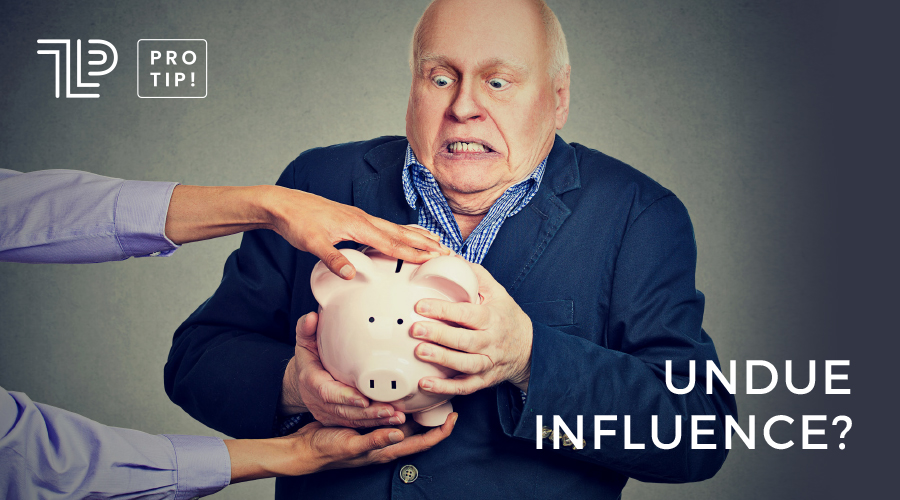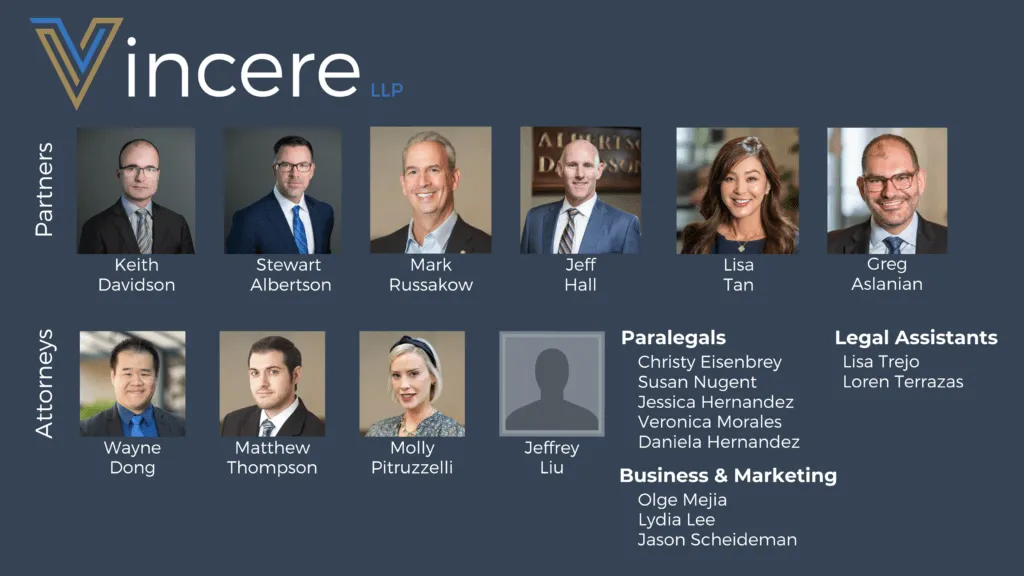
Undue Influence and Estate Plan
The term might not be familiar to everyone. But it’s impact surely is to anyone who has suffered because of it.
We’re talking about undue influence, a situation when one person’s free will is overpowered and/or shaped by another to make a changes to an estate plan which greatly benefit the influencer. Typically, this results in the plaintiff being denied the real estate, stocks, valuables or cold hard dollars they feel were coming to them as part of an inheritance.
Here at Trust Law Partners, our expert team of trust and will attorneys sees examples of undue influence constantly:
An overbearing deadbeat sibling moves in with an ailing parent under the pretense of being a caregiver. But, come to find out, his real motive was to exploit Mom’s affection for him to change the will, get joint tenancy and ultimately inherit the home.
Or perhaps a “trusted friend” volunteers to handle Dad’s finances because he’s become too feeble to do so, and the kids are either too busy or too far away to notice. He gets Dad to add his name to bank accounts and, unbeknownst to son and daughter, name him as a payable-upon-death beneficiary of those accounts.
The fact is that, although people may say, “I know it when I see it,” undue influence can nevertheless be a very vague and hard-to-define condition—and even harder to prove. Why is this? Well, for one reason, it usually takes place when there are no witnesses. Next, unless a court has appointed a guardian or conservator, Mom or Dad are legally empowered to make decisions about their own affairs. Finally, adding to the murkiness, undue influence is often aided by an elder’s impaired cognitive abilities, as it was in one of the examples above.
When interviewing clients who want to contest a trust or will, the term “undue influence” almost always comes up. But all too often the conduct we hear about does not rise to the level required to invalidate an estate plan. That’s extremely frustrating, both for us and our client. Even so, it does not keep us from fighting hard and using our combined 40 years of litigation experience to try proving undue influence.
In our quest to mount a successful legal case, Trust Law Partners looks for certain factors that can lead to direct or circumstantial evidence of undue influence. I would like to share some of the questions we ask to uncover that evidence:
- Was the influencer isolating and preventing other family members or friends from seeing the elderly person?
- Did the influencer take the elderly person to the doctor and run essential errands so that the person became dependent on or feared angering or alienating them?
- Did the influencer find an attorney, take the elderly person to them and change the estate plan to their benefit?
- Was the influencer in the room during the meeting with the attorney?
- Are there witnesses who will testify to this undue influence?
- Can they relate specific instances of the influencer acting in a way that showed they controlled the elderly person’s actions or heavily influenced them?
- Are there emails, handwritten letters or other documents showing the influencer attempted to taint and degrade the image of other family members who were eventually cut out of the estate plan?
- In the absence of evidence that they actually exerted undue influence, did the perpetrator have a strong, provable financial motivation to change the estate plan?
Often, we don’t get objective answers to any of the specific questions above. Instead, clients will say things like, “Mom and Dad would not have cut me out of the will unless my brother Gary was up to his old tricks.” While we have no reason to doubt those statements, and can appreciate the emotional and financial damage caused by the Garys of the world, we best serve our clients by giving them no-nonsense advice.
Unlike many law firms, Trust Law Partners does not take cases, our clients’ money, nor their time, unless we believe there’s a good chance of winning. So, if you believe undue influence was a factor in being denied your rightful inheritance, I recommend you consider the questions I’ve posed here to decide if you want to move ahead.


